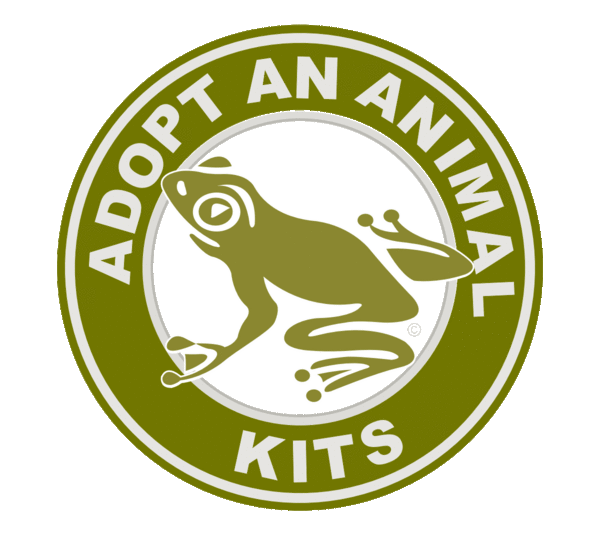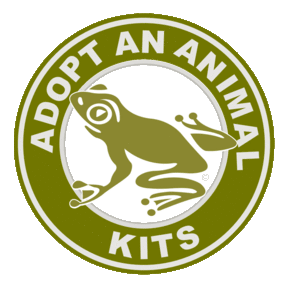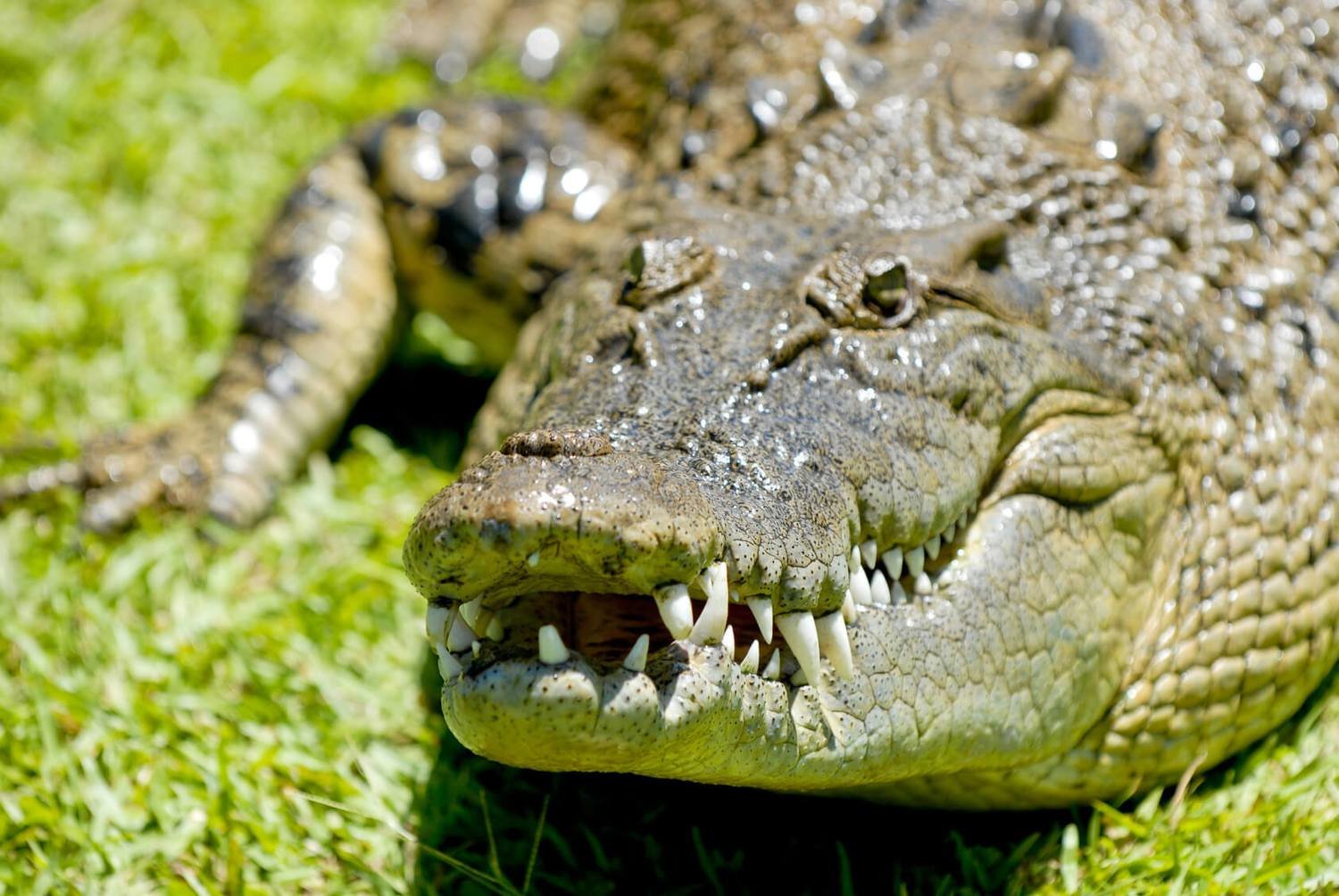

Adopt An Animal Kits
Adopt An Animal symbolically. Your Adopt An Animal Kit comes in a Deluxe Folder and includes: Glossy Photo of Your Adopted Animal; Adopt An Animal Adoption Certificate; Fact Sheet About Your Adopted Animal; Help Animals Info Cards Packed With Information On Animal Issues & How You Can Help Animals And The Environment. Adopt An Animal for Yourself or as a Gift.
Adopt An Alligator
Adopt An Alligator
Your Adopt An Alligator Kit comes in a Deluxe Folder and includes:
- Glossy Photo Of Your Adopted Alligator
- Adopt An Alligator Adoption Certificate
- Fact Sheet About Your Adopted Alligator
- Help Animals Info Cards Packed With Information On Animal Issues & How You Can Help Animals And The Environment
Adopt An Alligator Kits make great gifts and can be sent directly to the recipient. Simply supply the recipient's name and mailing address as shipping information. We'll even include a letter stating the Adopt An Animal Kit is from you.
Adopt An Animal symbolic adoption is a one time fee. Adopt an animal for yourself or order an Adopt An Animal Kit as a gift. Help make a difference for animals - Adopt An Animal Today!
Adopt An Alligator
An alligator is a crocodilian in the genus Alligator of the family Alligatoridae. There are two living alligator species: the American alligator (Alligator mississippiensis) and the Chinese alligator (Alligator sinensis). They are closely related to crocodiles.
Alligators are characterized by a broader snout and eyes more dorsally located than their crocodile cousins. Both living species also tend to be darker in color, often nearly black (although the Chinese alligator has some light patterning.) Also, in alligators only the upper teeth can be seen with the jaws closed (in contrast to true crocodiles, in which upper and lower teeth can be seen), though many individuals bear jaw deformities which complicate this means of identification.
There are only two countries on earth that have alligators: the United States and China. The Chinese alligator is endangered and lives only in the Yangtze River valley. The American alligator is found in the United States from the Carolinas to Florida and along the Gulf Coast. The majority of American alligators inhabit Florida and Louisiana. In Florida alone there are an estimated more than 1 million alligators. The United States is the only nation on earth to have both alligators and crocodiles. American alligators live in freshwater environments, such as ponds, marshes, wetlands, rivers, and swamps. In China, they live only along the fresh water of the Yangtze River.
Alligators are solitary, territorial animals. The largest of the species (both males and females) will defend prime territory; smaller alligators have a higher tolerance of other alligators within a similar size class. Although alligators have heavy bodies and slow metabolisms, they are capable of short bursts of speed that can exceed 30 miles per hour. Alligators' main prey are smaller animals that they can kill and eat with a single bite. Alligators may kill larger prey by grabbing it and dragging it in the water to drown. Alligators consume food that cannot be eaten in one bite by allowing it to rot or by biting and then spinning or convulsing wildly until bite size pieces are torn off. This is referred to as the "death roll."
Alligators are opportunistic feeders, eating almost anything they can catch. When they are young they eat fish, insects, snails and crustaceans. As they grow they take progressively larger prey items, including: larger fish such as gar, turtles, various mammals, birds, and other reptiles, including smaller alligators. They will even consume carrion if they are sufficiently hungry. As humans encroach onto to their habitat, attacks on humans are not unknown, but are few and far between.
The American alligator, Alligator mississipiensis, is found in swamps and sluggish streams from North Carolina to Florida and along the Gulf Coast. When young, it is dark brown or black with yellow transverse bands. The bands fade as the animal grows, and the adult is black. Males commonly reach a length of 9 feet and a weight of 250 lbs; females are smaller. Males 18 feet long were once fairly common, but intensive hunting for alligator leather eliminated larger individuals and threatened the species as a whole. The wild American alligator is now protected by law, but it is also inhumanely raised on farms for commercial uses.
The Chinese alligator, A. sinensis, which grows to about 6 feet long, is found in the Chang (Yangtze) River valley near Shanghai. This species is nearly extinct.
Alligators spend the day floating just below the surface of the water or resting on the bank, lying in holes in hot weather. They hunt by night, in the water and on the bank. Alligators hibernate from October to March. In summer the female builds a nest of rotting vegetation on the bank and deposits in it 20 to 70 eggs. The mother will defend the nest from predators and will assist the babies to water once they hatch. She will provide protection to the young for about a year if they remain in the area.
Caimans are similar to alligators, but distinct members of the Alligatoridae family found in Central and South America. There are several species, classified in three genera. The largest grow up to 15 feet long. Unlike alligators, caimans have bony overlapping scales on their bellies. Baby caimans are often sold in the United States as baby alligators. Caimans and alligators are wild animals and should not be kept as pets for human amusement.
Alligators and caimans are classified in the phylum Chordata, subphylum Vertebrata, class Reptilia, order Crocodilia, family Alligatoridae.
THREATS TO ALLIGATORS
American alligator populations were decimated by decades of hunting and habitat loss. In 1967 the animal was added to the federal endangered species list. The alligator recovered dramatically and was removed from the endangered species list in 1987. Alligators still face threats today, primarily from loss and fragmentation of natural habitats and encounters with people.
The Chinese alligator's population reduction has been mostly due to conversion of its habitat to agricultural use. A majority of their usual wetland habitats has been turned into rice paddies. Poisoning of rats, which the alligators then eat, has also been blamed for their decline. It was also not uncommon for people to kill the alligators, because they believed they were pests, out of fear, or for their meat. In the past decade, very few wild nests have been found, and even fewer produced viable offspring.
Collection for the exotic pet trade affects alligators. Every year, a variety of sources provides millions of animals to the exotic pet trade. Animals are captured from their native habitat and transported to various countries to be sold as “pets”. Others are surplus animals from zoos or their offspring. Backyard breeders also supply exotic animals. The sellers of these animals often disregard state or local laws regulating private possession of exotics, and the dangers, difficulties, physical and physiological needs of the animals they peddle. The suffering of the animals in the hands of unqualified and hapless buyers appears to be of no concern in the lucrative exotic pet trade. Reptiles pose safety risks to humans. Many incidents have been reported of escapes, strangulations, and bites from pet reptiles across the country.
Alligators are also victims of the animal entertainment industry. The use of wild animals as “entertainers” removes animals from their natural habitat; depriving them of the ability to freely engage in instinctual behaviors. Both children and adults are desensitized to animal mistreatment by the animal entertainment industry. Even under the best of circumstances, captivity is cruel for wild animals. Confined to tiny areas and gawked at by crowds, animals in exhibits and acts endure constant stress. They may suffer from temperature extremes and irregular feeding and watering. Without exercise, they become listless, their immune systems are weakened, and they become prone to sickness; many resort to self-mutilation in reaction to stress or boredom. Mental illness is rampant among confined animals. Torn from their families and deprived of all dignity, every part of their lives is controlled by their captors. While zoos may appear to be educational and conservation-oriented, most are designed with the needs and desires of the visitors in mind, not the needs of the animals.
Alligators also are inhumanely farmed commercially. Their hide is tanned and used to make leather goods such as shoes and handbags, while alligator meat is also considered a delicacy in many parts of the world.
Adopt Adopt An Animal Kits
Our Adopt An Animal Kits are educational packets that allow you to symbolically adopt a favorite animal species and contain a variety of information promoting the protection of wildlife, companion animals, farm animals and the environment. By purchasing a symbolic adoption kit you will receive a packet of information regarding daily choices you can make to help the earth and animals.
Your Adopt An Animal Kit comes in a Deluxe Folder and includes:
Glossy Photo Of Your Adopted AnimalAdopt An Animal Adoption CertificateFact Sheet About Your Adopted AnimalHelp Animals Info Cards Packed With Information On Animal Issues & How You Can Help Animals And The Environment.
Adopt an animal for yourself or order an Adopt An Animal Kit as a gift. Symbolically adopting an animal is the perfect gift for a loved one who loves animals, and helps to promote the compassionate treatment of animals and respect for the environment by offering information on how to help the earth and animals. Adopt An Animal Kits can be sent directly to the recipient: simply supply the recipient's name and mailing address as shipping information. We'll even include a letter stating the Adopt An Animal Kit is from you.
Adopt An Animal Kits is a small, independent business not affiliated with any other business, non profit or charitable organization.
Fast Shipping!
Shipping time for Adopt An Animal Kits averages 2 to 4 business days - USA. Allow additional time for Adopt An Animal Kits orders outside the USA. Your Adopt An Animal Packet will arrive approximately 2 to 4 business days following shipping date. Shipping for Adopt An Animal Kits within the USA is by U.S.P.S. Priority Mail.
INTERNATIONAL ORDERS: Average shipping time for Adopt An Animal Kits outside of the USA is 5 to 14 business days, including Canada. International Shipping & Handling for Adopt An Animal Kits is by U.S.P.S. First Class Mail.
About Us

Adopt An Animal Kits, LLC
The world is teaming with an amazing diversity of animals. Some species are beautiful, others bizarre — but they all are important to the ecosystem and deserve our respect, compassion and protection. Unfortunately, many animal species are declining at a rapid rate as a result of irresponsible human activities. Habitat destruction, pollution, hunting, poor agricultural practices and changes in climate are among the threats faced by wildlife and domestic animals.
Adopt An Animal Kits, LLC is a small business who believes in promoting the advancement of compassionate living by educating the public about animal and environmental issues and what individuals can do to prevent cruelty to animals. Through our work, we strive to eliminate the prejudice of animals (speciesism) through educational efforts. Our business produces printed and printable educational materials available to individuals with an interest in earth and animal topics. Our Adopt An Animal Kits seek to educate and influence individuals on environmental and animal issues. The purchase of an Adopt An Animal Kit allows you to symbolically adopt your, or your loved one's, favorite animal species while promoting the protection of wildlife, companion animals, farm animals and the environment. Rather than adopting an indivdual animal, you are symbolicly adopting the species. Each kit contains a collection of information on how you or your loved one can make daily choices to help animals and the environment.
Our website provides an information portal regarding these issues. Information posted on the site is free of charge and available to anyone with an interest. Our printed and printable materials are available to individuals with an interest in earth and animal issues. We produce hundreds of fact sheets, flyers, and digital materials regarding environmental and animal issues. Most materials are available at no cost to anyone with an interest.
Adopt An Animal Kits, LLC is not a charitable or nonprofit organization.

